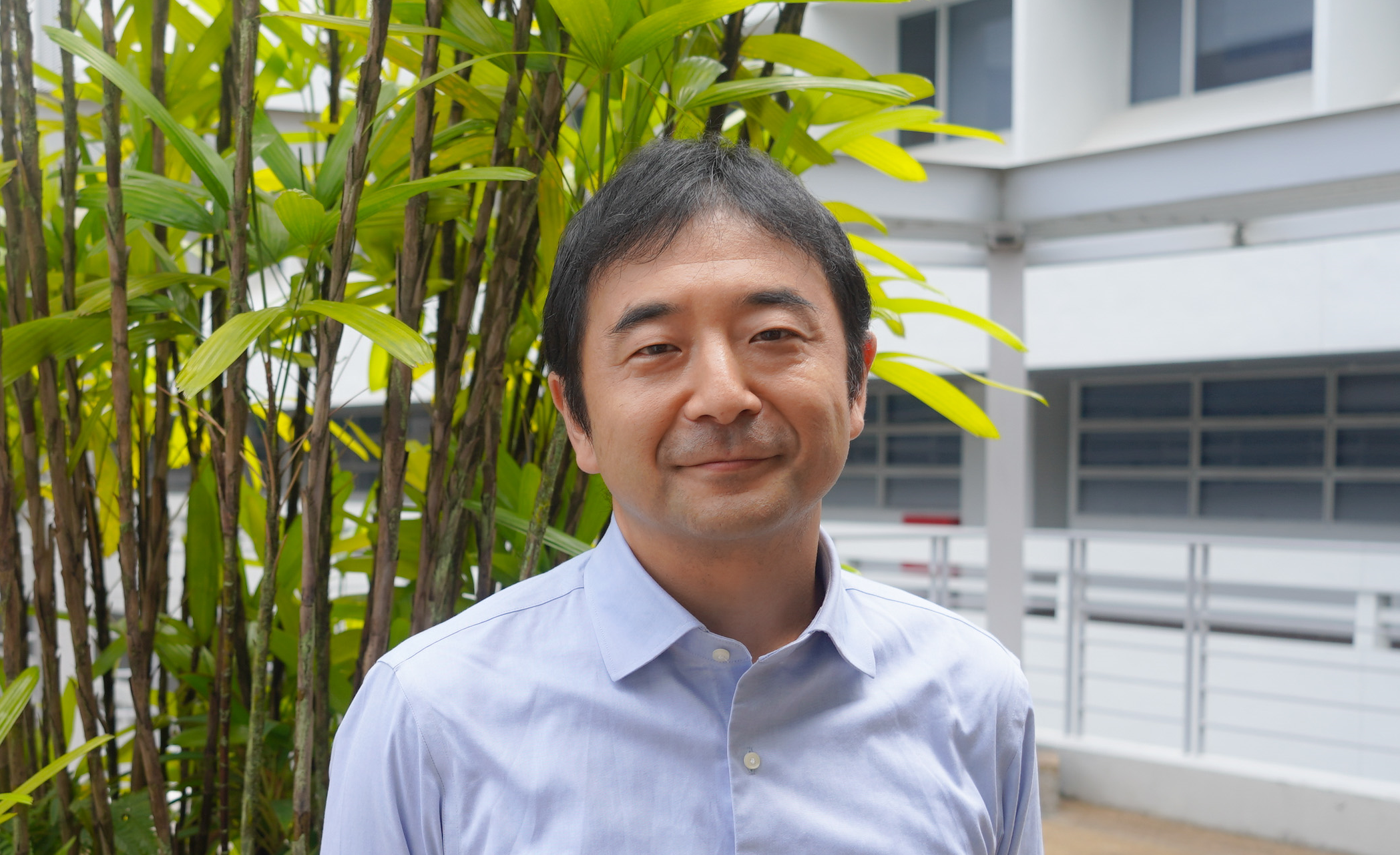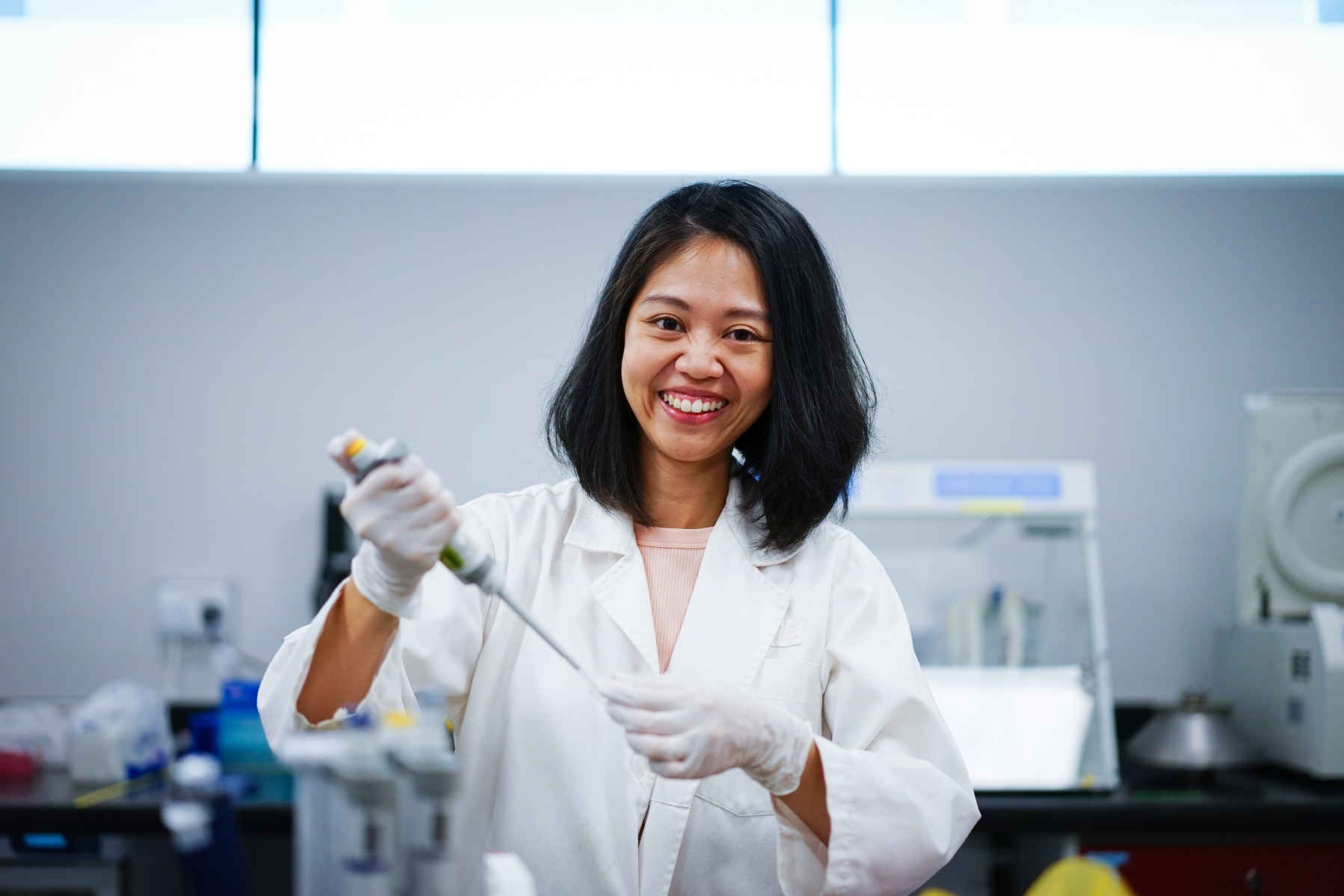About Us
The NTU College of Science was established in 2007, comprising 2 schools at first - the School of Biological Sciences (established 2002) and the School of Physical and Mathematical Sciences (established 2005). The Asian School of the Environment and the School of Chemistry, Chemical Engineering and Biotechnology joined CoS in 2015 and 2022, respectively.
Dean's Message

I wish you a warm welcome to the College of Science (CoS) here at Nanyang Technological University (NTU Singapore).
Scientific understanding is key to discovery and development. Within CoS, more than two hundred faculty are pushing at the boundaries of our knowledge of the universe in the domains of Biology, Chemistry, Earth & Environmental Sciences, Mathematics, and Physics. Scientific scholarship at NTU is world-leading. It is focused on addressing some of the biggest challenges that face humanity today. Through discovery across the College we are charting routes and solutions to those challenges that will deliver a healthier and more secure sustainable future for humanity. And we are building on our fundamental understanding of the world around us as we go. The world is changing rapidly, and our understanding of it is developing at a similar pace. There can never have been a more exciting time to embark on a scientific journey.
A few examples outline some of these transformations. Quantum technologies are opening up new classes of materials that will deliver the next generation of devices that guide, build and enhance our daily lives. Our Physicists are uncovering new classes of materials that will provide sustainable future energy as the world transitions from fossil fuel sources. Mathematicians at NTU are at the leading edge of methods in cryptography and data security, and are working with computer scientists on developments in artificial intelligence and the data revolution. Chemists here are ranked as among the very best in the world and building new classes of chemical materials and reactions that provide new routes to tackling disease. Our Biologists are working in multi-disciplinary teams to understand how our brains really function, using neurological knowledge to address brain trauma and diseases of aging such as Parkinson’s and Alzheimer’s. And finally, our Earth and Environmental Scientists are working on understanding changing hazards and conditions in our environment, from climate change to volcanic and earthquake risks, to sea level rise, that may affect all Earth’s inhabitants over our lifetimes.
A scientific education at NTU equips our graduates for the changing world of the future, and we are all deeply passionate about passing on the scientific curiosity and sense of adventure that abounds at NTU. We do this alongside the key skills needed to develop a scientific understanding and knowledge of our universe. We are committed to helping build the next generations of scientists, and through them help build a better future for all.
So, I welcome you to explore the four Schools of CoS — the Asian School of the Environment, the School of Biological Sciences, the School of Chemistry, Chemical Engineering and Biotechnology, and the School of Physical & Mathematical Sciences — where we hope to inspire many to lifelong fulfilment in science.
Shunsuke Chiba
Acting Dean, College of Science

